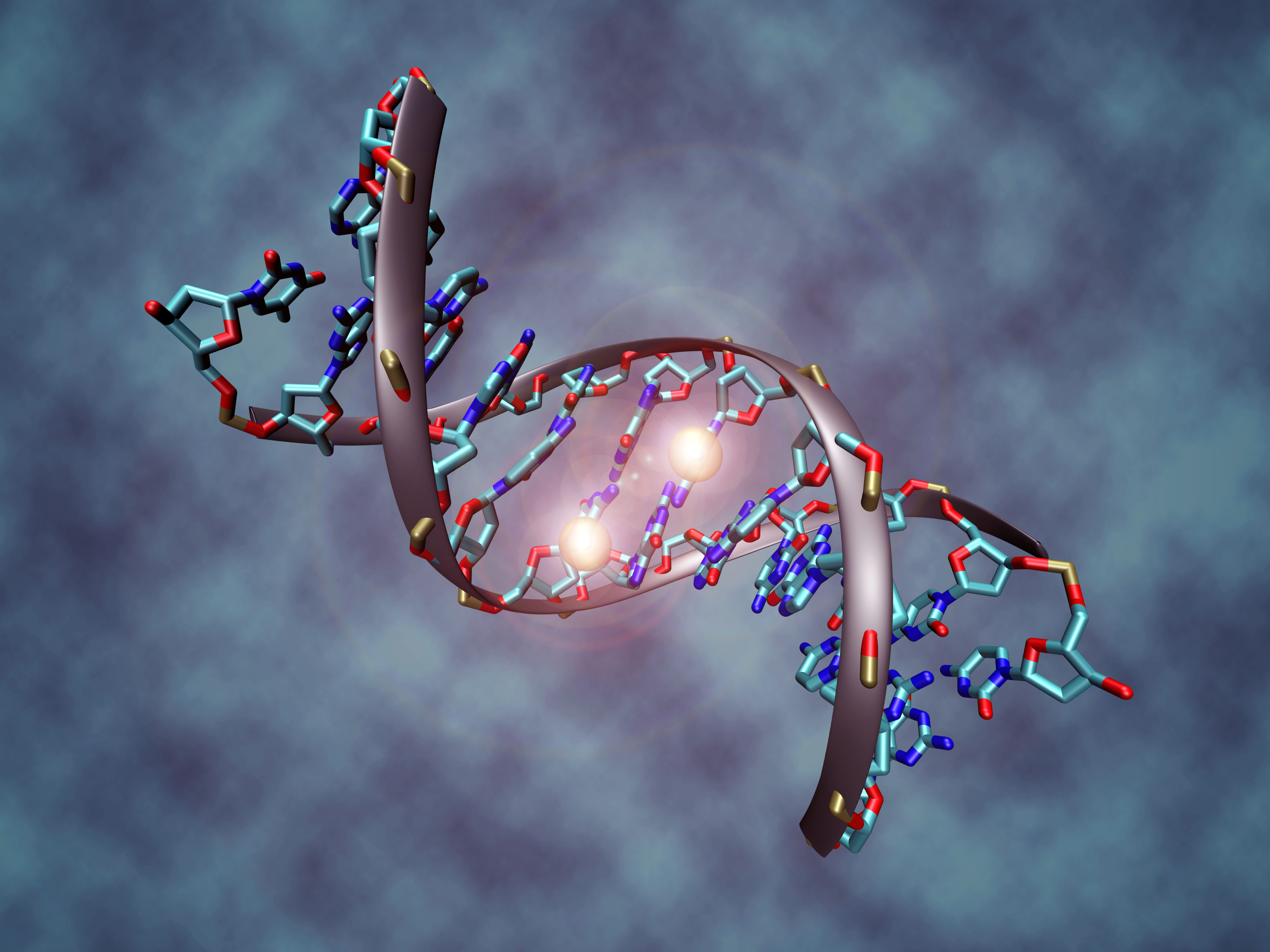Aging, your environment, and certain lifestyle choices, such as what you eat or drink, can modify your DNA, without changing its overall structure. This type of modification is called an epigenetic change, and can turn your genes on or off.
A new study suggests that drinking tea may lead to epigenetic changes among women. Those changes could play a role in altering risk of certain diseases, including cancer. The study was published in the journal Human Molecular Genetics.

Illustration of DNA molecule that is methylated, C. Bock, Max Planck Institute for Informatics
One of the main ways epigenetic changes happen is through a process called DNA methylation. Methylation of DNA occurs when certain chemical combinations, called methyl groups, become attached to segments of our DNA.
Previous research has shown that drinking coffee or tea may be linked to reduced risk of certain diseases by curbing tumor growth, reducing inflammation, and influencing how estrogen is metabolized.
To identify possible links between drinking coffee or tea and DNA methylation, researchers in Sweden examined the blood cells of more than 3,000 men and women who participated in four European studies. Everyone had given information about how much coffee or tea they drank on average, along with other lifestyle habits.
After determining whether a person did or did not drink coffee or tea, the researchers identified which areas of the blood cells were methylated. Then, using statistical analysis, they identified correlations between coffee or tea drinking and DNA methylation. (Coffee and tea consumption varied widely among the four studies. On average, participants drank roughly 28 to 106 cups of coffee, and 10 to 57 cups per of tea per month.)
They discovered that drinking coffee was not linked to DNA methylation in either men or women. Drinking tea, however, promoted methylation on the DNA in women, but not men.
Then they narrowed their study to specific regions on the DNA. They found that drinking tea promoted epigenetic changes on 28 DNA regions in the women. These regions contain six genes that are linked to estradiol (a type of estrogen) metabolism, and five genes that are linked to cancer.
Since the study participants were mostly older adults and elderly people, the researchers couldn’t be sure that the same effects of drinking tea would be observed in younger people. So, they divided the women into two groups – younger than 50, and 50 or older – and observed no significant differences in location or rates of methylation.
The researchers noted that women tend to drink more tea than men and, generally speaking, tea drinkers tend to have healthier lifestyles than coffee drinkers. Both of these factors might have influenced the findings in this study.
It’s important to note that this is emerging research, and currently no definitive links have been identified between drinking tea and cancer. Previous research, however, has shown that beneficial substances in tea called catechins and theaflavins reduce estrogen levels in women, which can play a role in breast cancer risk.

Epigenetic changes are also only one possible mechanism in which these beverages may play a role in cancer risk. AICR research shows there is strong evidence that coffee lowers risk of endometrial and liver cancers.
The study and authors cites numerous funders, including Swedish Medical Research Council and the National Institute for Health. One of the authors is an advisor for Precision Wellness, Inc. and Cellink.
Thanks to Teresa Johnson for guest blogging.
Teresa L. Johnson, MSPH, MA, RDN, is a nutrition and health communications consultant with a long-time interest in the role of plant-based diets and cancer prevention. Her work draws on elements of nutritional biochemistry, phytochemistry, toxicology, and epidemiology.






WHAT-KIND-OF-TEA? This article is pretty useless without that information.
I’d really love to know which teas you are referring to in your epigenetic changes article. I’d particularly like to know which caffeine free teas would be effective since I can’t handle caffeine.
Hi, i’d like to know what kind of tea was studied?
The authors of this study did not have information about types of tea (e.g. black versus green), caffeine content, brewing methods, or serving size, all of which could have influenced the study outcome. Most tea drinkers in Europe (where the study was conducted) prefer black tea. Green tea is gaining popularity, however, due to its potential health benefits.
I too would like to know which tea was researched. Green or otherwise, caffeine, or caffeine free. This all matters doesn’t it? I am a pancreatic cancer survivor (so far….). I really want to know the answer please
i have been wanting to get matcha powder for so long- will def be checking it out online. I love the flavor of green tea and spend way too much on green tea lattee. thanks for this simple recipe
The benefits of drinking tea come from both green or black tea. Caffeine free teas have complicated processes, rendering the benefits less effective